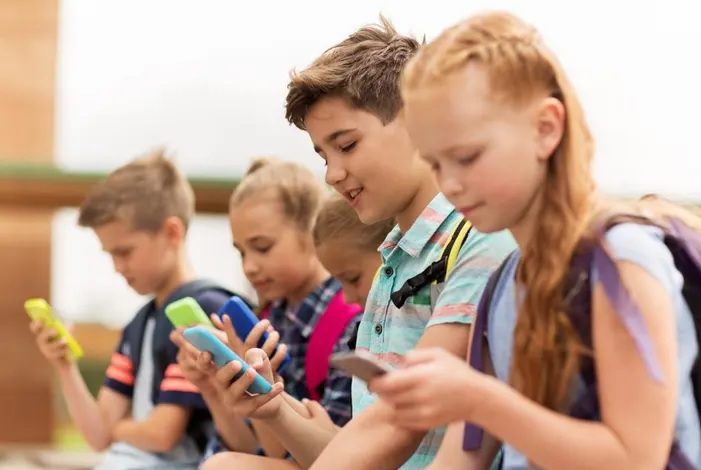A UN report has recommended that smartphones be banned from schools to prevent classroom disruption and protect kids from cyberbullying.
According to The Guardian:
Unesco, the UN’s education, science and culture agency, said there was evidence that excessive mobile phone use was linked to reduced educational performance and that high levels of screen time had a negative effect on children’s emotional stability.
It said its call for a smartphone ban sent a clear message that digital technology as a whole, including artificial intelligence, should always be subservient to a “human-centred vision” of education, and never supplant face-to-face interaction with teachers.
Unesco warned policymakers against an unthinking embrace of digital technology, arguing that its positive impact on learning outcomes and economic efficiency could be overstated, and new was not always better.
“Not all change constitutes progress. Just because something can be done does not mean it should be done,” it concluded.
With more learning moving online, especially in universities, it urged policymakers not to neglect the “social dimension” of education where students receive face-to-face teaching.
“Those urging increasing individualisation may be missing the point of what education is about,” it said.
“The digital revolution holds immeasurable potential but, just as warnings have been voiced for how it should be regulated in society, similar attention must be paid to the way it is used in education,” said Unesco’s director general, Audrey Azoulay.
She added: “Its use must be for enhanced learning experiences and for the wellbeing of students and teachers, not to their detriment. Keep the needs of the learner first and support teachers. Online connections are no substitute for human interaction.”
Unesco said in the report that countries needed to ensure they had clear objectives and principles in place to ensure digital technology in education was beneficial and avoided harm, both to individual students’ health, and more widely to democracy and human rights, for instance through invasion of privacy and stoking of online hatred.
Excessive or inappropriate student use of technology in the classroom and at home, whether smartphones, tablets or laptops, could be distracting, disruptive and result in a detrimental impact on learning, it said.
It cited large-scale international assessment data that indicated a “negative link” between excessive use of digital technology and student performance.
Although technology could potentially open up opportunities for learning for millions, the benefits were unequally spread, with many poorer people from around the world effectively excluded, it said.
A digital educational infrastructure was expensive, and its environmental costs often underestimated.
There was little robust research to demonstrate digital technology inherently added value to education, Unesco said in its 2023 Global Education Monitor report.
Much of the evidence was funded by private education companies trying to sell digital learning products. Their growing influence on education policy around the world was “a cause for concern”, it added.
Countries were “waking up to the importance of putting learners first” when it came to digital technology, said Unesco.
It cited China, which it said has set boundaries for the use of digital devices as teaching tools, limiting them to 30% of all teaching time, with students expected to take regular screen breaks.
It accepted that online learning “stopped education melting down” when schools and universities closed during Covid-19 lockdowns.
It estimated that more than a billion students globally moved to online learning during the pandemic – but added that millions of poorer students without internet access were left out.
Based on its analysis of 200 education systems around the world, Unesco estimated one in six countries had banned smartphones in school, either through law or guidance.
These included France, which introduced its policy in 2018, and the Netherlands, which will bring in restrictions from 2024.
Announcing the ban this month, the Dutch education minister, Robbert Dijkgraaf, said:
“Students need to be able to concentrate and need to be given the opportunity to study well. Mobile phones are a disturbance, scientific research shows. We need to protect students against this.”

